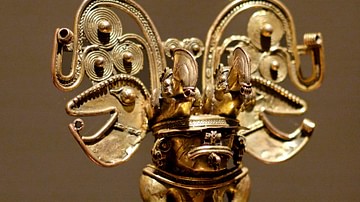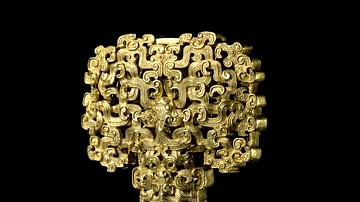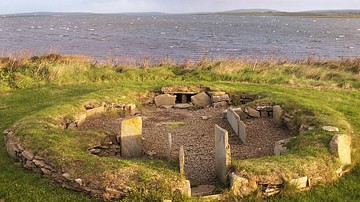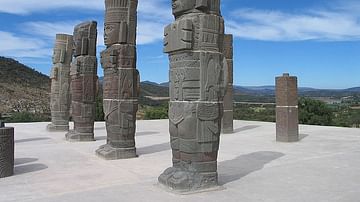Search
Summary 
Loading AI-generated summary based on World History Encyclopedia articles ...
Search Results

Video
Hephaestus the Greek God of Fire and Metallurgy
Hephaestus is the Olympian god of metallurgy, smiths, craftsmen, and fire and is the blacksmith for the Olympian gods. In fact, many of the myths associated with Hephaestus have him crafting something, whether it be for his own use, or because...

Definition
Yahweh
Yahweh is the name of the state god of the ancient Kingdom of Israel and, later, the Kingdom of Judah. His name is composed of four Hebrew consonants (YHWH, known as the Tetragrammaton) which the prophet Moses is said to have revealed to...

Definition
Tairona Civilization
The Tairona civilization - one of the Chibcha family tribes - flourished in northern Colombia between 200 CE and 1600 CE. Like the Muisca of Cundinamarca, the Tairona were known for their expertise in crafting and metallurgy, especially goldsmithing...

Article
The Steel Industry in the British Industrial Revolution
The production of steel during the British Industrial Revolution became cheaper and more reliable thanks to the Bessemer converter, a type of blast furnace that removed undesirable impurities from pig iron. The superior strength and durability...

Definition
Ancient China
Ancient China produced what has become the oldest extant culture in the world. The name 'China' comes from the Sanskrit Cina (derived from the name of the Chinese Qin Dynasty, pronounced 'Chin') which was translated as 'Cin' by the Persians...

Definition
Zhou Dynasty
The Zhou Dynasty (1046-256 BCE) was among the most culturally significant of the early Chinese dynasties and the longest lasting of any in China's history, divided into two periods: Western Zhou (1046-771 BCE) and Eastern Zhou (771-256 BCE...

Article
7 Ancient Sites in Georgia
Georgia, lying at the junction of Europe and Asia, is a country of ancient myths with a rich and turbulent history. Home to the first European hominids and the birthplace of wine, Georgia's roots trace back to ancient civilisations. Throughout...

Definition
Neolithic Period
The term Neolithic Period refers to the last stage of the Stone Age - a term coined in the late 19th century CE by scholars which covers three different periods: Palaeolithic, Mesolithic, and Neolithic. The Neolithic period is significant...

Definition
Bronze Age Collapse
The Bronze Age Collapse (also known as Late Bronze Age Collapse) is a modern-day term referring to the decline and fall of major Mediterranean civilizations during the 13th-12th centuries BCE. The precise cause of the Bronze Age Collapse...

Definition
Toltec Civilization
The Toltec civilization flourished in ancient central Mexico between the 10th and mid-12th centuries. Continuing the Mesoamerican heritage left to them by earlier cultures, the Toltecs built an impressive capital at Tollan. Ultimately, they...